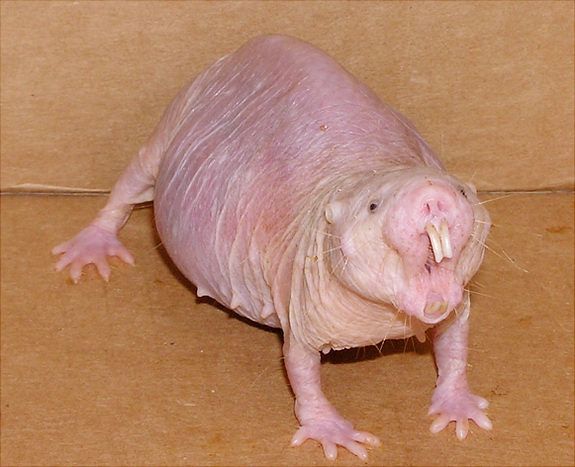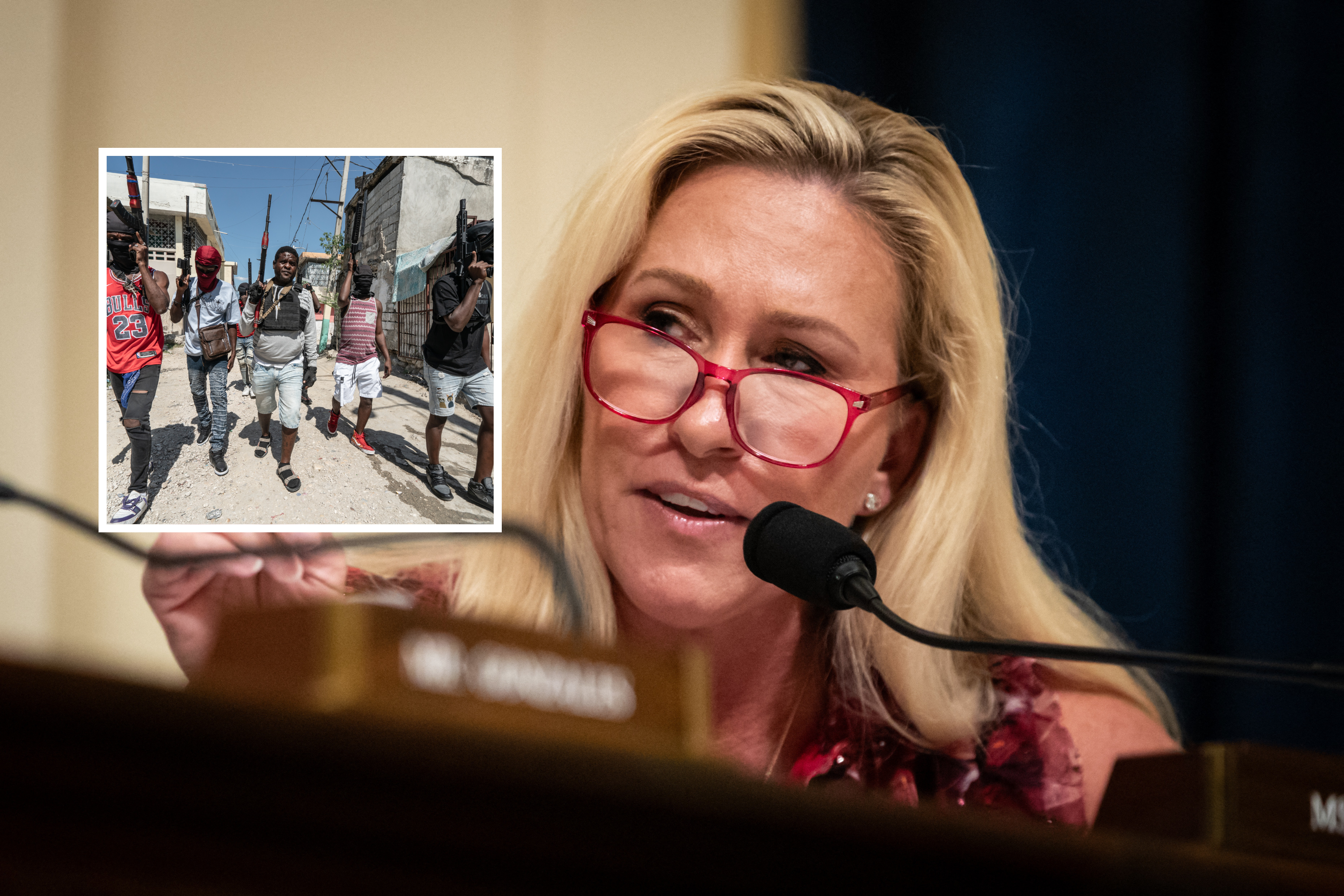
It's a widely known fact that aging brings you closer to death—except if you're a naked mole rat. New research shows that these bizarre rodents defy the laws that govern aging for every other mammal. The discovery could potentially hold clues for extending human life and stopping the aging process.
Our rising odds of death as we age are governed by a mortality law known as Gompertz-Makeham. This mathematical equation holds that from adulthood onward, our increase in age corresponds to an increase in our risk of death. Humans, for instance, double our risk of death every eight years from age 30 onward, according to Science. All mammals, from humans to horses to mice, are subject to this law—but not naked mole rats.
In a first, researchers studying these rodents found that they appear to defy the equation; they grow older, but without becoming any more likely to die. The odd, hairless rodent has a lower risk of mortality than any other animal on record, according to a press release from the research site of Google-backed, California-based biotechnology company Calico Labs. A paper describing the findings was published in the scientific journal eLife.
For the naked mole rat, age is just a number; these rodents show no increase in mortality risk as they get older. https://t.co/Gc2KwNmu8h pic.twitter.com/iemWEFASed
— eLife - the journal (@eLife) January 26, 2018
"We have long known that naked mole rats are unique mammals," co-author Rochelle Buffenstein, a senior principal investigator at Calico, said in the press release. "Our research demonstrates that naked mole rats do not age in the same manner as other mammals, and in fact show little to no signs of aging."
Naked mole rats, whose biology is comparable to that of mice, already defy expectations with their lifespan of more than 30 years, which is how long Buffenstein has been studying them. Mice live about four years; naked mole rats—were they at all interested in following the normal rules of biology and physics—wouldn't live past about six years, according to Science. The naked mole rats Buffenstein observed reached maturity at about six months old, at which stage their odds of dying were nearly one in 10,000.
Yet instead of increasing from that point forward, Buffenstein has observed that their odds of dying stay constant for the rest of their lives; they may even go down a little, according to the new paper. Buffenstein and her colleagues found that the rodents' risk of death does not increase even as they age to an incredible 25 times past the point of reproductive maturity. In fact, they don't show any obvious signs that they're aging at all.
It remains to be seen what we can apply from this to the human aging process, including research on treatments for age-related diseases like Alzheimer's and on reversing the aging process in general.
"To me this is the most exciting data I've ever gotten," Buffenstein told Science. "It goes against everything we know in terms of mammalian biology."
Naked mole rats are already known for a bizarre variety of real-life superpowers, including the ability to transcend pain, survive nearly 20 minutes without oxygen and in some cases resist cancer. The rats appear to have an unusual system of DNA repair, but even Buffenstein can't fully answer why they age the way they do.
"These findings reinforce our belief," Buffenstein said in the press release, "that naked mole rats are exceptional animals to study to further our understanding of the biological mechanisms of longevity."
Uncommon Knowledge
Newsweek is committed to challenging conventional wisdom and finding connections in the search for common ground.
Newsweek is committed to challenging conventional wisdom and finding connections in the search for common ground.
About the writer
Kastalia Medrano is a Manhattan-based journalist whose writing has appeared at outlets like Pacific Standard, VICE, National Geographic, the Paris Review Daily, ... Read more





